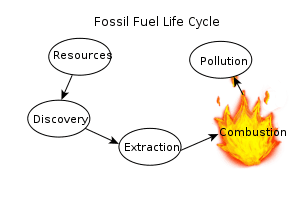Over the last three years, with its economy in tatters, Ireland embraced a novel strategy to help reduce its staggering deficit: charging households and businesses for the environmental damage they cause.
The government imposed taxes on most of the fossil fuels used by homes, offices, vehicles and farms, based on each fuel’s carbon dioxide emissions, a move that immediately drove up prices for oil, natural gas and kerosene. Household trash is weighed at the curb, and residents are billed for anything that is not being recycled.
The Irish now pay purchase taxes on new cars and yearly registration fees that rise steeply in proportion to the vehicle’s emissions.
Environmentally and economically, the new taxes have delivered results. Long one of Europe’s highest per-capita producers of greenhouse gases, with levels nearing those of the United States, Ireland has seen its emissions drop more than 15 percent since 2008.
Although much of that decline can be attributed to a recession, changes in behavior also played a major role, experts say, noting that the country’s emissions dropped 6.7 percent in 2011 even as the economy grew slightly.
“We are not saints like those Scandinavians — we were lapping up fossil fuels, buying bigger cars and homes, very American,” said Eamon Ryan, who was Ireland’s energy minister from 2007 to 2011. “We just set up a price signal that raised significant revenue and changed behavior. Now, we’re smashing through the environmental targets we set for ourselves.”
By contrast, carbon taxes are viewed as politically toxic in the United States. Republican leaders in Congress have pledged to block any proposal for such a tax, and President Obama has not advocated one, although the idea has drawn support from economists of varying ideologies.
Yet when the Irish were faced with new environmental taxes, they quickly shifted to greener fuels and cars and began recycling with fervor. Automakers like Mercedes found ways to make powerful cars with an emissions rating as low as tinier Nissans. With less trash, landfills closed. And as fossil fuels became more costly, renewable energy sources became more competitive, allowing Ireland’s wind power industry to thrive.
Even more significantly, revenue from environmental taxes has played a crucial role in helping Ireland reduce a daunting deficit by several billion euros each year.
via The New York Times – ELISABETH ROSENTHAL
The Latest Streaming News: Carbon Taxes updated minute-by-minute
Bookmark this page and come back often
Latest NEWS
Latest VIDEO








